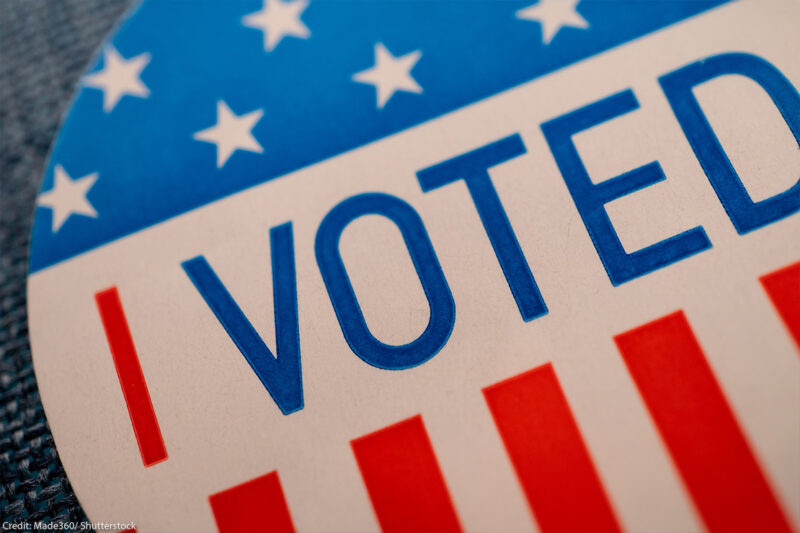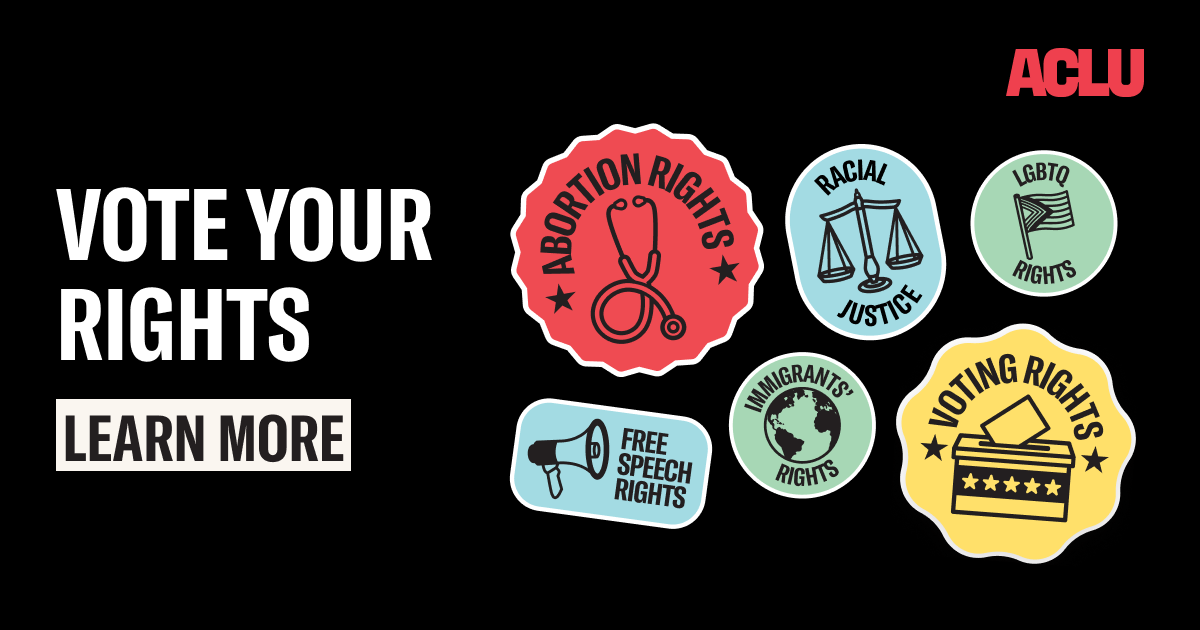Three Ways the ¿œ∞ƒ√≈ø™Ω±Ω·π˚ is Protecting Our Right Vote


Election Day is less than two weeks away. Right now, the race remains tight and, while we may have a clear winner on November 6th, that day could also mark the start of a prolonged period of uncertainty while votes are counted, recounted, contested and certified.
At the ¿œ∞ƒ√≈ø™Ω±Ω·π˚, we know that our country was built on the freedom to vote and elect leaders who govern in our name. Right now, however, certain politicians are spreading lies and putting in place deliberate barriers to voting. We‚Äôre dedicated to ensuring that every voter is able to cast a ballot that is both counted and respected.
Our elections have built-in checks for accuracy. Teams of people from both parties work together at every step of the voting, counting, and reporting process to ensure that results are verified before they are officially certified. We take pride in having held reliable elections through times of war, economic depression, and social unrest. Today, the ¿œ∞ƒ√≈ø™Ω±Ω·π˚ is in the courts and on the ground to ensure that every voter's voice is heard, every ballot is counted, and the elections are certified accurately.
Georgia Hand-Counting Rule Blocked
Georgia, where early voting began in record numbers this month, is one of seven battleground states likely to determine the presidential race.
In Georgia, the ¿œ∞ƒ√≈ø™Ω±Ω·π˚ and its partners successfully argued before the courts to permanently block the Georgia State Election Board‚Äôs new rule requiring the hand counting of ballots in the upcoming November election.
We argued that the rule would invite error and cause delays, making it much harder for the state to meet the certification deadline and risking uncounted votes. A state trial court not only blocked this disruptive rule, it also blocked several other unlawful changes to election rules that were recently adopted by the Georgia State Election Board. While the case is on appeal, the Georgia Supreme Court denied an attempt to put these rules back in place before the November election. This is a huge victory for Georgia voters who can now turn their focus to casting a ballot in this election.
Election Official in Michigan Promises to Certify Vote
The ¿œ∞ƒ√≈ø™Ω±Ω·π˚ and the ¿œ∞ƒ√≈ø™Ω±Ω·π˚ of Michigan filed a lawsuit against Kalamazoo County Board of Canvasser Robert Froman, who, in a Detroit News article, reportedly indicated that he would refuse to certify the election if it unfolded in the same way as the 2020 election.
The Michigan Constitution and a state statute require canvassers to certify election results within 14 days after the election based solely on the total number of votes reported from each location within their jurisdiction. The law does not allow them to withhold certification.

Vote Your Rights | Voting Rights
This election, our rights are at stake and we must all do our part. I know you're with me — head to aclu.org/vote to start the conversation.
Source: ¿œ∞ƒ√≈ø™Ω±Ω·π˚
Although he told the ¿œ∞ƒ√≈ø™Ω±Ω·π˚ that he didn‚Äôt make the statements attributed to him in the Detroit News article, Froman refused to contact the paper and request a retraction. With the paper standing by its story, the ¿œ∞ƒ√≈ø™Ω±Ω·π˚ filed suit to ensure election law would be followed. In September, Froman signed a sworn affidavit stating that he will certify the November presidential election results.
In filing this lawsuit, the ¿œ∞ƒ√≈ø™Ω±Ω·π˚ was not only seeking to ensure Froman lawfully performed his duties, it was also sending an important warning to election officials throughout the state that the civil rights group and other pro-democracy organizations will take immediate action if it appears voters‚Äô rights will be violated. Froman‚Äôs alleged statements were in line with a widely reported anti-democratic trend of election denialism in which local officials in Michigan and throughout the country have threatened to interfere with the election certification process. Concerns about potential refusals to certify election results have also been reported in swing states such as Nevada, Colorado, Georgia, and Arizona.
Nebraska Restores Voting Rights to Individuals with Past Felony Convictions
This month, the Nebraska Supreme Court ruled that Nebraskans with past felony convictions can vote.
The ¿œ∞ƒ√≈ø™Ω±Ω·π˚ and its partners represented individual Nebraskans and Civic Nebraska in challenging a directive issued by Nebraska Secretary of State Robert Evnen that ordered county elections officials to defy state law by refusing to register Nebraskans with past felony convictions. The state‚Äôs highest court ordered Evnen and all county officials to comply with state laws and give those with previous felony convictions access to the ballot.
For nearly 20 years, Nebraskans with past felony convictions had been able to register to vote and vote two years after completing all terms of their sentence, including probation and parole. This April, an overwhelming bipartisan majority of state senators ended the two-year waiting period. Yet shortly before it went into effect, Secretary Evnen issued a directive instructing counties not to enforce the law and prevent Nebraska's roughly 7,000 newly eligible returning citizens from registering to vote. Today, after the Nebraska Supreme Court ruled in our favor that the Secretary's directive was unlawful, all Nebraskans can register and vote upon completion of their felony sentence.
As Election Day draws near, we must continue to condemn and challenge efforts to overthrow the will of the people ‚Äî from threats against election workers to baseless claims used to deny the true winners from taking office and block our freedom to vote. At the ¿œ∞ƒ√≈ø™Ω±Ω·π˚, we will fight any efforts to intimidate or silence voters through legal maneuvers or violent acts. We will expose these lies and demand that every vote be counted and every validated result be certified to protect our freedoms.



